In its Medicare physician fee schedule proposed rule for 2022, the Centers for Medicare & Medicaid Services (CMS) has proposed extending Medicare coverage to audio-only communication technology for telehealth services to diagnose, evaluate, or treat established patients with mental health disorders and providing Medicare coverage for telemental health services for beneficiaries who are in their homes for appointments.
CMS has proposed limiting the use of an audio-only interactive telecommunications system for mental health services for cases in which practitioners have the capability to provide two-way, audio/video communications, but the beneficiary is not capable of using, or does not consent to using, two-way, audio/video technology. CMS has also proposed requiring a new modifier for services provided using audio-only communications that would certify that the practitioner had the capability to provide two-way, audio/video technology, but instead used audio-only technology due to beneficiary choice or limitations.
In addition, CMS has proposed allowing certain services added to the Medicare telehealth list to remain on the list until Dec. 31, 2023 to create a glide path to evaluate whether the services should be added permanently to this list after the Covid-19 public health emergency (PHE) ends.
CMS is also seeking comment on these proposed recommendations: (1) whether additional documentation should be required in the patient’s medical record to support the clinical appropriateness of audio-only telehealth; (2) whether or not the agency should preclude audio-only telehealth for some high-level services, such as level 4 or 5 E/M visit codes or psychotherapy with crisis; and (3) if there are other “guardrails” the agency should establish to minimize concerns about program integrity and patient safety.
The agency also proposed implementing recently enacted legislation that removes statutory restrictions to provide Medicare coverage of telehealth services for mental health disorders for beneficiaries in any geographic location and in their homes. CMS recommends requiring that an in-person, non-telehealth service be provided by the physician or practitioner furnishing mental health telehealth services within six months prior to the initial telehealth service, and at least once every six months thereafter.
CMS is seeking comment on whether a different interval may be necessary or appropriate for mental health services furnished through audio-only communication technology. The agency is also seeking comment on how to address scenarios where a physician or practitioner of the same specialty/subspecialty in the same group may need to provide a mental health service due to unavailability of the beneficiary’s regular practitioner.
For opioid treatment programs (OTPs), the proposed rule recommends allowing OTPs to provide counseling and therapy services via audio-only interaction (such as telephone calls) after the Covid-19 PHE ends in cases where audio/video communication is not available to the beneficiary, including circumstances in which the beneficiary is not capable of, or does not consent to using, devices that permit a two-way audio/video interaction, provided all other applicable requirements are met.
CMS has proposed requiring that OTPs use a service-level modifier for audio-only services billed using the counseling and therapy add-on code (not bundled services) and document in the medical record the rationale for a service provided using audio-only services, in order to facilitate program-integrity activities.
CMS also proposed coverage for the newly approved, higher dose naloxone hydrochloride nasal spray product, and is delaying compliance with electronic prescribing of controlled substances (EPCS) from January 2022 to January 2023.
Click here for more information about the proposed rule, which will be published in the Federal Register on July 23. CMS will accept comments on the rule until 5 p.m. ET on Monday, Sept. 13, 2021.

